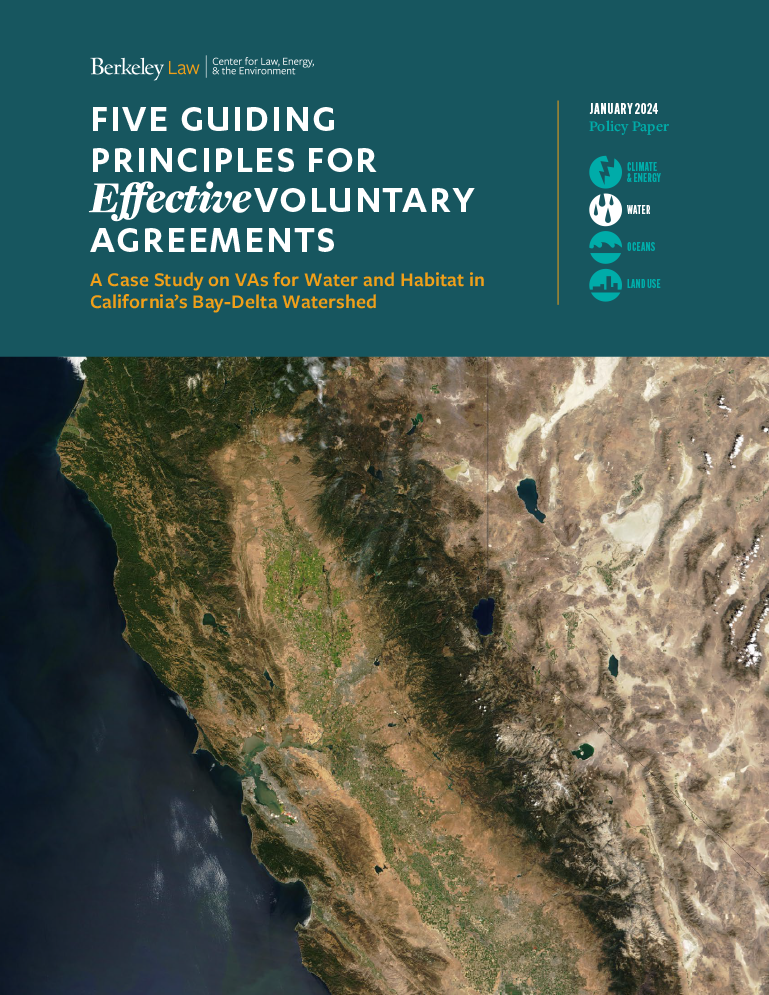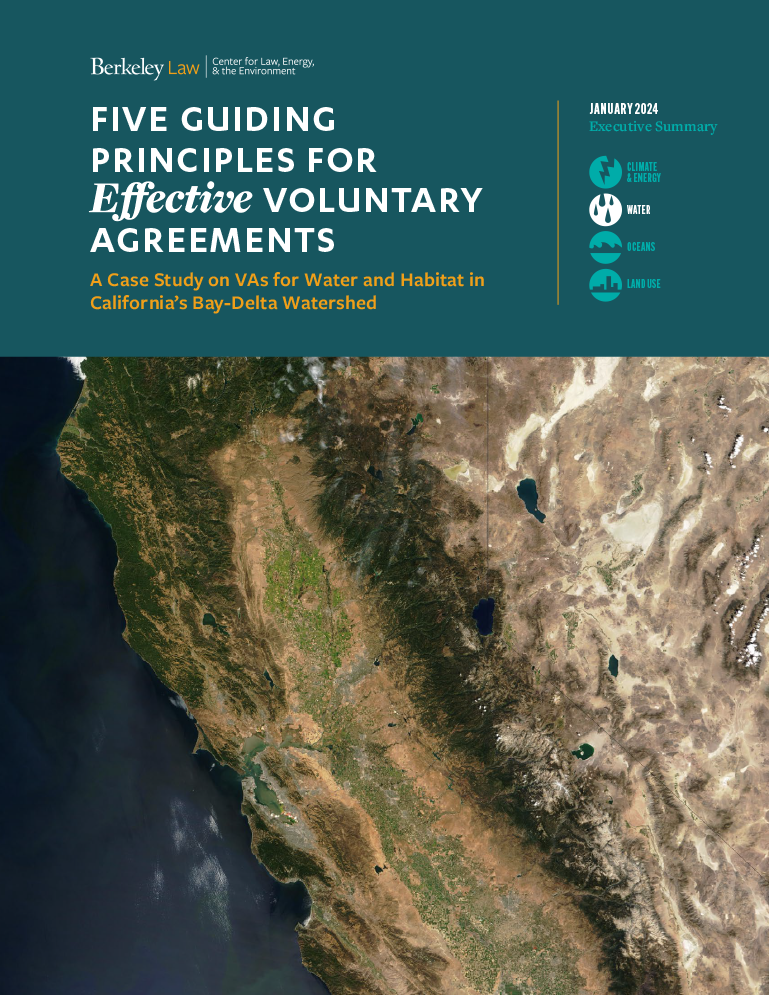January 2024


California has increasingly emphasized efforts to develop voluntary agreements (VAs) with water users as a means of achieving regulatory goals. VAs are negotiated agreements that establish pathways for regulated entities to meet regulatory requirements through alternative means.
In theory, a VA can combine the protectiveness of a regulatory backstop with the creativity and flexibility of a negotiated deal to produce outcomes as good as, or better than, those achievable through strict application of regulatory requirements alone. VAs may also be able to achieve those outcomes more quickly, with less conflict and litigation.
However, theory and reality do not always match. This policy paper examines the state’s pursuit of VAs for flow and habitat restoration to support native fish populations in California’s Bay-Delta watershed. Despite years of apparent effort on the part of the state and other stakeholders, complex and politically challenging discussions have not yet yielded fully developed or adequate VAs capable of achieving key regulatory goals in Bay-Delta watershed. We find that leading with VAs as a solution for balancing human and environmental needs for water in the Bay-Delta watershed—rather than first, or simultaneously, pursuing a regulatory pathway to achieve key biological goals—is a perilous strategy that risks continued environmental degradation and legal noncompliance.
We offer five principles to guide the appropriate use and evaluation of VAs. While the Bay-Delta case study informed these principles, we expect them to be relevant whenever VAs are being considered as an option for creatively implementing regulatory requirements.
Download the EXECUTIVE SUMMARY.
Download the full POLICY PAPER.
Read our Legal Planet blog post.
Read our op-ed in the Sacramento Bee.
Read a Los Angeles Times feature on our work.
For more information:
Contact Michael Kiparsky, Director, or Nell Green Nylen, Senior Research Fellow
Wheeler Water Institute, Center for Law, Energy, & the Environment
The Water Foundation funded this project.